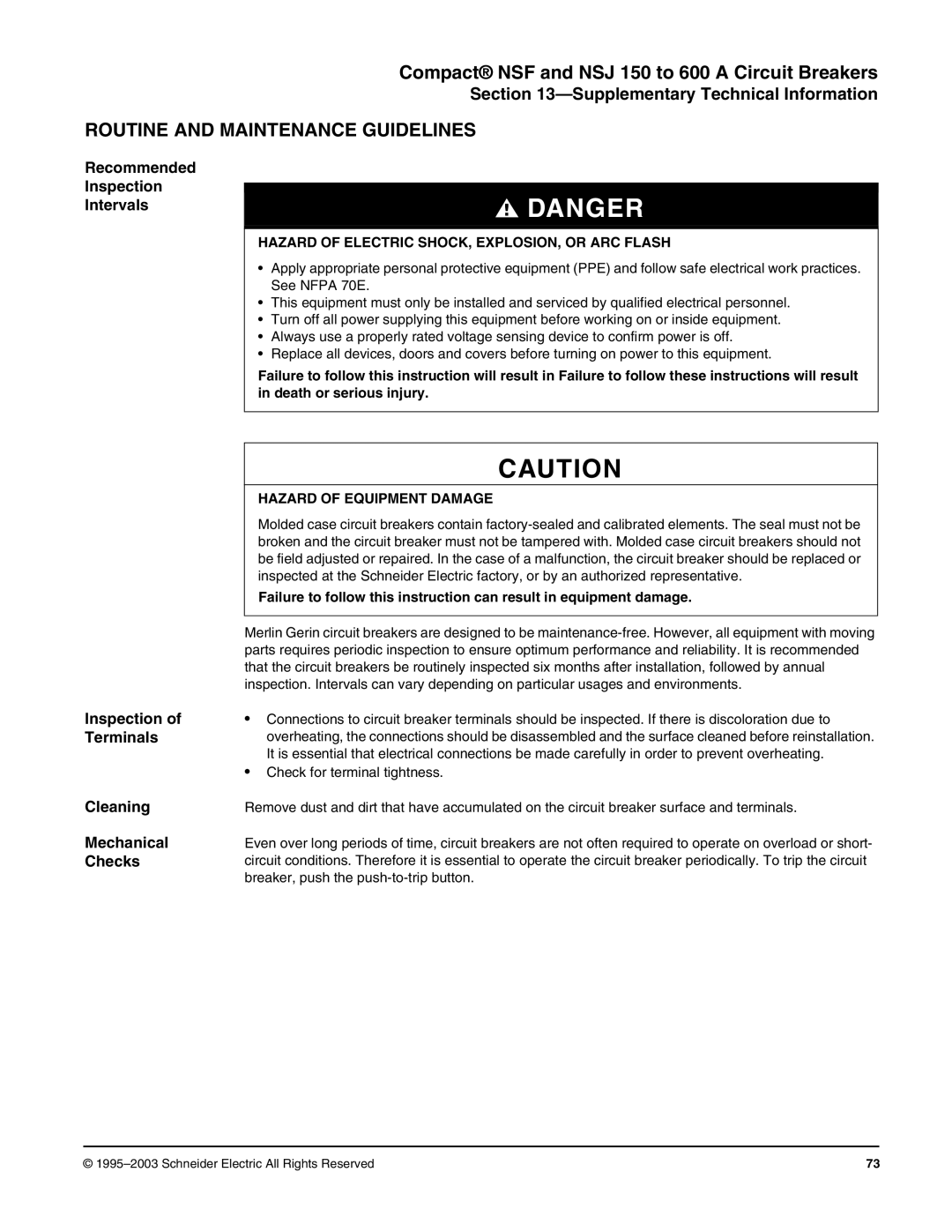
Compact® NSF and NSJ 150 to 600 A Circuit Breakers
Section
ROUTINE AND MAINTENANCE GUIDELINES
Recommended
Inspection
Intervals
![]() DANGER
DANGER
HAZARD OF ELECTRIC SHOCK, EXPLOSION, OR ARC FLASH
•Apply appropriate personal protective equipment (PPE) and follow safe electrical work practices. See NFPA 70E.
•This equipment must only be installed and serviced by qualified electrical personnel.
•Turn off all power supplying this equipment before working on or inside equipment.
•Always use a properly rated voltage sensing device to confirm power is off.
•Replace all devices, doors and covers before turning on power to this equipment.
Failure to follow this instruction will result in Failure to follow these instructions will result in death or serious injury.
|
|
|
|
|
| CAUTION |
|
|
|
|
|
| HAZARD OF EQUIPMENT DAMAGE | ||
| Molded case circuit breakers contain | ||
| broken and the circuit breaker must not be tampered with. Molded case circuit breakers should not | ||
| be field adjusted or repaired. In the case of a malfunction, the circuit breaker should be replaced or | ||
| inspected at the Schneider Electric factory, or by an authorized representative. | ||
| Failure to follow this instruction can result in equipment damage. | ||
|
|
|
|
| Merlin Gerin circuit breakers are designed to be | ||
| parts requires periodic inspection to ensure optimum performance and reliability. It is recommended | ||
| that the circuit breakers be routinely inspected six months after installation, followed by annual | ||
| inspection. Intervals can vary depending on particular usages and environments. | ||
Inspection of | • Connections to circuit breaker terminals should be inspected. If there is discoloration due to | ||
Terminals | overheating, the connections should be disassembled and the surface cleaned before reinstallation. | ||
| It is essential that electrical connections be made carefully in order to prevent overheating. | ||
| • Check for terminal tightness. | ||
Cleaning | Remove dust and dirt that have accumulated on the circuit breaker surface and terminals. | ||
Mechanical | Even over long periods of time, circuit breakers are not often required to operate on overload or short- | ||
Checks | circuit conditions. Therefore it is essential to operate the circuit breaker periodically. To trip the circuit | ||
| breaker, push the | ||
© | 73 |
